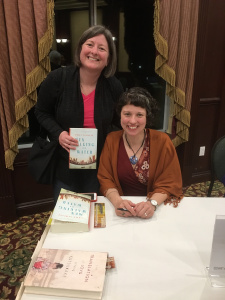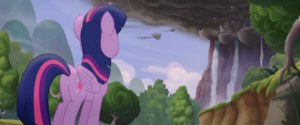
As with last month’s pick, July’s Book of the month came by way of a recommendation. I have known Magda Raczyńska, head of literature at the London-based Polish Cultural Institute for five years – ever since we both took an English PEN evening class about translation. Few people know more about what’s coming into English from Poland than Magda, so I always pay attention to her bulletins.
A few months ago, however, her email was particularly enthusiastic. A novel by one of Poland’s most celebrated contemporary authors, Olga Tokarczuk, had been translated into English by Jennifer Croft and was being published as Flights by Fitzcarraldo Editions in May of this year. As is often the case with many of the best books I read, something in the tone of her recommendation told me that this novel was special.
I lost no time ordering a copy. When it arrived, my inkling that this was no ordinary book was reinforced by a single endorsement printed on the back of Fitzcarraldo’s trademark minimalist blue cover: Tokarczuk is ‘a magnificent writer’, according to Belarusian Nobel Prize-winner Svetlana Alexievich, whose Chernobyl Prayer astonished me last year.
Flights is a challenging book to review. Woven of many threads tracing different kinds of journeys through space and time – stretching back across several centuries and around the globe – this is a novel that defies attempts to summarise it. Instead of the familiar formula of a central character or small group of characters forging their way through the thickets and over the obstacles an author throws in their path to create a single, loosely coherent journey, this is a vast ensemble piece in which voices appear and disappear and new perspectives surface as late as tens of pages from the end.
Rather than characters tying the narrative together, this novel is held together by ideas: reflections on the body, travel, life, death and what it means to move through space. These are expressed through a variety of tropes that crop up repeatedly in the fragmented accounts that, among many other things, portray the story of the Flemish anatomist Philip Verheyen, the journey of Chopin’s heart from Paris to Warsaw and a mother’s abandonment of her chronically ill child to ride the Moscow metro and sleep rough alongside an eccentric homeless woman.
The whole is carried on a current of exquisite writing (credit to Jennifer Croft here), which captures objects and experiences in startlingly fresh ways yet without the showiness that so often attaches itself to works that make heavy use of imagery. Time and again passages such as the description of nightfall on the opening page – ‘Now the dark soaks into my skin. Sounds have curled up inside themselves, withdrawn their snail’s eyes; the orchestra of the world has departed, vanishing into the park – had me reaching for my pencil to scrawl an enthusiastic ‘YES’ in the margin. In particular, the extended description of the death of a distinguished lecturer towards the end of the book is one of the best pieces of writing I have ever seen.
Although one of the many voices in the book claims that ‘describing something is like using it – it destroys; the colours wear off, the corners lose their definition, and in the end what’s been described begins to fade, to disappear,’ Tokarczuk challenges this notion on almost every page, bodying forth life in all its vibrancy and strangeness so that we can recognise it anew. She makes us nostalgic for experiences we have never had – childhood holidays in rural Poland, trips to remote islands, conferences in far-flung corners of the globe. Meanwhile, the assuredness of her writing means that the frequent shifts between perspectives and the resumption of some storylines long after their last appearance is rarely a problem.
That said, the narrative will be too diffuse for some readers. Although the majority of the book is taut and compelling, there are odd sections that feel aimless or contain somewhat self-indulgent digressions that an editor might not have let a lesser-known writer keep. I also wasn’t convinced by the inclusion of maps, drawings and other illustrations, most of which are too small to interpret easily (and probably mean that this book is better read in hard copy than on an ereader).
But it almost feels churlish to mention these gripes in the face of such brilliance. The quality of the whole more than makes up for them. In sum, I can only echo the words of a far more discerning reader: Tokarczuk is magnificent.
Flights (Bieguni) by Olga Tokarczuk, translated from the Polish by Jennifer Croft (Fitzcarraldo Editions, 2017)
Share this:




